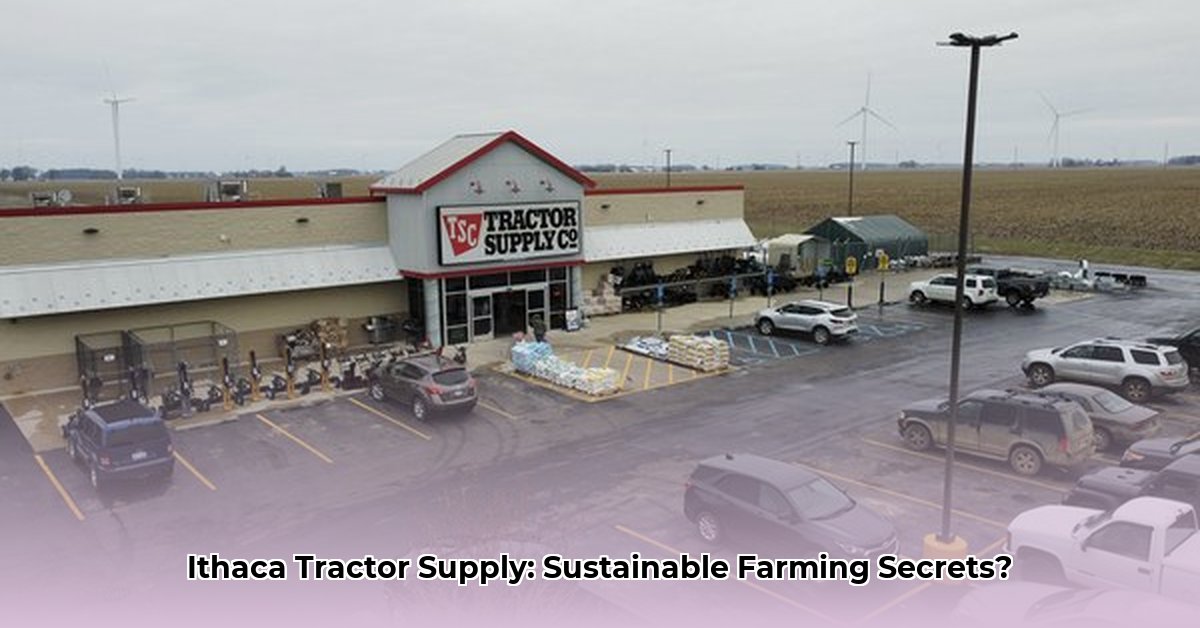
Tractor Supply's New York Presence: A Landscape Analysis
Tractor Supply Company (TSC) maintains a significant retail presence across New York State, serving a diverse clientele ranging from large-scale agricultural operations to smaller, family-run farms. This widespread accessibility raises a crucial question: How does TSC's extensive network impact the adoption and advancement of sustainable agricultural practices within New York? This analysis explores TSC's role, identifying both opportunities and challenges. Understanding TSC's contribution requires examining its product offerings, supply chain practices, and overall commitment to environmentally responsible agriculture. For example, check out this Canandaigua store. Finding the nearest Tractor Supply store in New York is straightforward, thanks to the company's user-friendly website 1. This ease of access undoubtedly benefits farmers, ensuring convenient access to essential supplies. However, convenient access alone doesn't equate to a substantial contribution to sustainable farming. A deeper examination is necessary.
TSC's Product Portfolio and Sustainable Agriculture
While TSC's extensive network offers undeniable convenience, a comprehensive assessment of its impact on sustainable agriculture necessitates a detailed examination of its product offerings. Crucially, quantifiable data on the proportion of TSC's product range dedicated to organic farming or other sustainable methods remains unavailable. This data gap significantly limits the ability to definitively assess the company's true contribution to sustainable practices.
Furthermore, the sustainability of TSC's supply chain itself must be investigated. This includes analyzing their transportation methods, packaging materials, and sourcing practices. Are they prioritizing local suppliers to minimize transportation distances? Are they actively employing sustainable packaging options? Transparency in this area is critical for a complete evaluation.
"The lack of readily available data regarding TSC's sustainable product offerings hampers any definitive analysis," states Dr. Emily Carter, Professor of Agricultural Economics at Cornell University. "To truly understand their impact, comprehensive data on product sourcing, transportation, and packaging are essential."
Stakeholder Actions: A Multifaceted Approach
The challenge of enhancing sustainable agriculture through TSC necessitates a collaborative effort involving various stakeholders. The following table outlines actionable strategies for different groups:
| Stakeholder Group | Short-Term Actions | Long-Term Actions |
|---|---|---|
| Tractor Supply Co. | Conduct regional demand analysis; adjust inventory to meet specific sustainable farming needs. | Invest in comprehensive market research to understand consumer preferences, particularly towards sustainable products. |
| Farmers & Ranchers | Leverage TSC's accessibility for convenient supply acquisition. | Actively request more sustainable product options and engage directly with TSC regarding their specific needs. |
| Local Communities | Support local TSC stores to foster economic growth. | Collaborate with TSC on sustainable local initiatives and promote responsible agricultural practices. |
| Environmental Groups | Monitor TSC's progress in sustainability and environmental responsibility. | Advocate for improved sustainability throughout TSC's operations and policies. |
Data Gaps and Future Research Directions
The current analysis is limited by the absence of several vital datasets. Sales figures for individual stores, a comprehensive breakdown of products sold regionally, and a comparative analysis against other farm supply companies are all crucial for a holistic understanding. Without this granular data, our assessment remains partial. This is akin to having a map of TSC locations without information about the local agricultural landscape, crop yields, or specific farming needs.
Future research should prioritize:
- Alignment with Regulations: A thorough analysis of how TSC's operations align with New York's agricultural and environmental regulations.
- Case Studies: Detailed case studies of individual TSC stores, like the Ithaca location, to understand their contribution to local agricultural ecosystems.
- Supply Chain Vulnerability: An assessment of TSC's supply chain vulnerability to disruptions caused by weather, transportation, or global supply chain issues.
Conclusion: Potential and the Path Forward
Tractor Supply Company possesses significant potential to positively influence sustainable agriculture in New York. However, realizing this potential hinges on proactive efforts to enhance their sustainable product offerings, increase transparency in their supply chain practices, and foster meaningful engagement with all stakeholders. Addressing the identified data gaps through thorough research is crucial for a comprehensive understanding of TSC's role in shaping the future of environmentally responsible farming in New York.